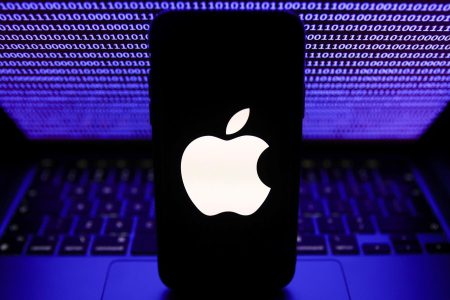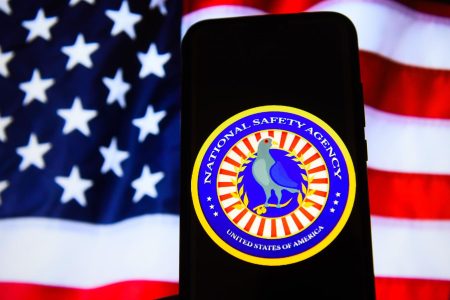Despite the prevailing concerns about the potential for artificial intelligence to eliminate jobs and harm (or even destroy) the planet, the reality is quite different. AI is not necessarily the harbinger of doom; rather, it has immense potential to enhance human capabilities and drive positive outcomes. The challenge is in understanding and applying AI without being overwhelmed by it.
To learn how leaders and career-minded professionals can embrace AI as a tool for accelerating career advancement and increasing professional happiness, I reached out to Matt Strain, the AI Whisperer, who was featured in the NY Times for using “ChatGPT to create an entire book of cocktails based on the tenets of traditional Chinese medicine written in the style of the J. Peterman catalog.” After a long career at big tech companies (Apple, Adobe …), Matt’s started his own company, The-Prompt.AI, to focus on what he calls “AI for Real People.”
William Arruda: Matt, you shared a quip that’s making the rounds online: “AI won’t replace your job, but someone using AI might.” It’s how I came up with the title of this article, and it’s a sentiment echoing across organizations, from individuals to agencies and companies alike. Interestingly, the Pew Research Center’s report A Majority of Americans Have Heard of ChatGPT, But Few Have Tried It Themselves highlights the public’s simultaneous fascination and fright with the increased use of AI. With the incredible potential that AI promises, why have so few people incorporated it into their work?
Matt Strain: You’re absolutely right. The vast potential of AI invokes fascination and fear. Many people simply don’t know where to start. We’ve seen companies condone the use of AI tools like ChatGPT and DALL-E. Others are requiring usage in the hopes of increased productivity. In addition to the natural fear of change, two main things come into play. First, the fear parlays into skepticism. Many look to find the flaws to confirm their fears. Second, most people simply don’t understand how to get the most out of the tools. Their prompts are ineffective and they have a poor experience.
Arruda: You say that rather than fearing AI, we should embrace it as a catalyst for progress. You suggest that by integrating AI into our work and leveraging its capabilities, we can unlock new opportunities, streamline processes, boost productivity and propel our careers to new heights. You make it sound like the magic bullet for career success.
Strain: There’s an opportunity to reframe this and think of AI as a creative muse that will push us to think more broadly. I believe it will become a non-judgmental co-pilot that is always eager to engage in exploratory discussions. In a nutshell, when you embrace AI right now, you will stand out from your peers and enhance the value of your personal brand.
Having said that, AI is not a magic bullet. We humans still need to invest the energy in forming the right questions and exploring the most important problems. These tools will augment—not replace—our skills.
Arruda: How else do you see AI being used by “real people?”
Strain: Everything everywhere all at once. Well, almost. For career advancement, continuous learning and adaptation are key. Generative AI systems can provide personalized learning resources. For instance, an entrepreneur venturing into the AI tech industry can employ AI for guidance on trends, opportunities, and goal-oriented recommendations. AI can aid in everything from designing research surveys to evaluating corporate strategy. AI is not some future concept. It’s a present-day tool being used by many.
Arruda: Are there any specific AI-powered platforms or applications that you believe can significantly improve networking and professional relationship-building?
Strain: There are many. AI will intelligently recommend contacts, personalize communications, and optimize engagement timings. It will nurture professional relationships through automated scheduling, social monitoring, real-time translation, and insights from data analytics.
These tools are being integrated into major networking platforms like LinkedIn and CRM tools. Microsoft’s relationship with OpenAI ensures that AI will be baked into their office suite. Google is already working on many of these tools. There’s also a new wave of AI start-ups rushing in on a daily basis.
Arruda: What are some real-world work applications that maybe we haven’t even thought about but would help us save time or take the drudgery out of monotonous work activities?
Strain: Meetings and email. In my seventeen years at Adobe, I calculated that I attended more than 40,000 meetings! Imagine a world where meetings are a breeze, and everyone actually looks forward to them. Imagine AI effortlessly aligning schedules, crafting tailor-made agendas, and making sure every voice is heard with real-time transcriptions and translations. With the mundane handled, your post-meeting world is infused with crisp summaries, clear action items, and insightful analytics, turning endless meetings into bursts of creativity and productivity. Might you actually look forward to meetings in the future?
Don’t even get me started about email. AI is coming to optimize that, but I’ll save those thoughts for the next interview.
Arruda: I have heard the emergence of generative AI compared to Oppenheimer’s nuclear bomb. What ethical considerations should career-minded professionals keep in mind when using AI in their work? What are the potential risks or pitfalls?
Strain: Yes, the comparison to Oppenheimer is in terms of AI having the capacity for both good and evil. The main ethical considerations in the short term revolve around ensuring fairness by mitigating biases, safeguarding data privacy and maintaining human accountability for AI-driven decisions. Successful companies will hold on to the human touch and be mindful of deploying AI as an augmentation, not a replacement.
We’re going to see a wave of anxiety in which employees and leaders have to manage short-term fear of change and concerns about jobs, mid-term fear of misinformation and economic disruption, and long-term fears of what it means to be human and the potential for bad actors. These are real and compounding fears. Leaders will have to draw on change management skills to proactively present a vision that demonstrates the ability to direct AI as a productive, creative force. Employees, shareholders and customers will depend on this.
On the positive side, AI can be directed to assist with all these concerns.
Arruda: How can AI assist professionals in enhancing their personal branding and online presence? Are there any specific strategies or tools you recommend? Any examples of people who are doing it right?
Strain: Absolutely. AI has the remarkable ability to study an individual, identifying their strengths and weaknesses, and distilling their authentic values and unique qualities. By observing professionals, AI can offer proactive guidance, aiding in their development and helping them create a genuine and compelling story that sets them apart. Once this story is formed, AI can further assist in creating a strategic plan to effectively communicate this narrative to the right audience. AI-infused tools will help with designing imagery, creating content and monitoring your brand mentions.
Arruda: I know you have been traveling the globe lately as a consultant to corporate leaders at companies in a variety of industries. You’re helping them establish their AI strategies. Without divulging any corporate secrets, what are these leaders’ biggest concerns and hopes for AI?
Strain: It’s a challenging time for leaders. They need to keep a positive attitude and be actively engaged, even as they tackle a long list of concerns such as where to begin, not wanting to disrupt what’s working, how to manage data, ethical issues, and the costs of bringing AI into the fold. There’s also the human element; they’re worried about how this affects their employees in terms of morale, the need for additional training, and the possibility of job losses. These are very real concerns, but they’re also manageable issues that can be addressed with a level-headed plan.
I foresee that the benefits are going to be greater than the worries. Right off the bat, AI can take over mundane work, which means people can focus on more strategic, higher-value tasks. For example, being able to use data effectively will spur innovation and enhance the experience for customers and employees alike. Once we get past this early transitionary stage, I see a future where our teams benefit from working side-by-side with AI-driven tools that can learn and augment their human counterparts.
Arruda: Thanks, Matt. It sounds like the power of AI as a tool for expanding your career success is bound only by the imagination. Readers, to see how you can push past the fear and leverage AI, check out this podcast where Matt dispels myths and reduces the stress that surrounds artificial intelligence.
The conversation has been edited and condensed for clarity.
William Arruda is a keynote speaker, co-founder of CareerBlast.TV and creator of the 360Reach Personal Brand Survey that helps you get candid, meaningful feedback from people who know you.
Read the full article here










